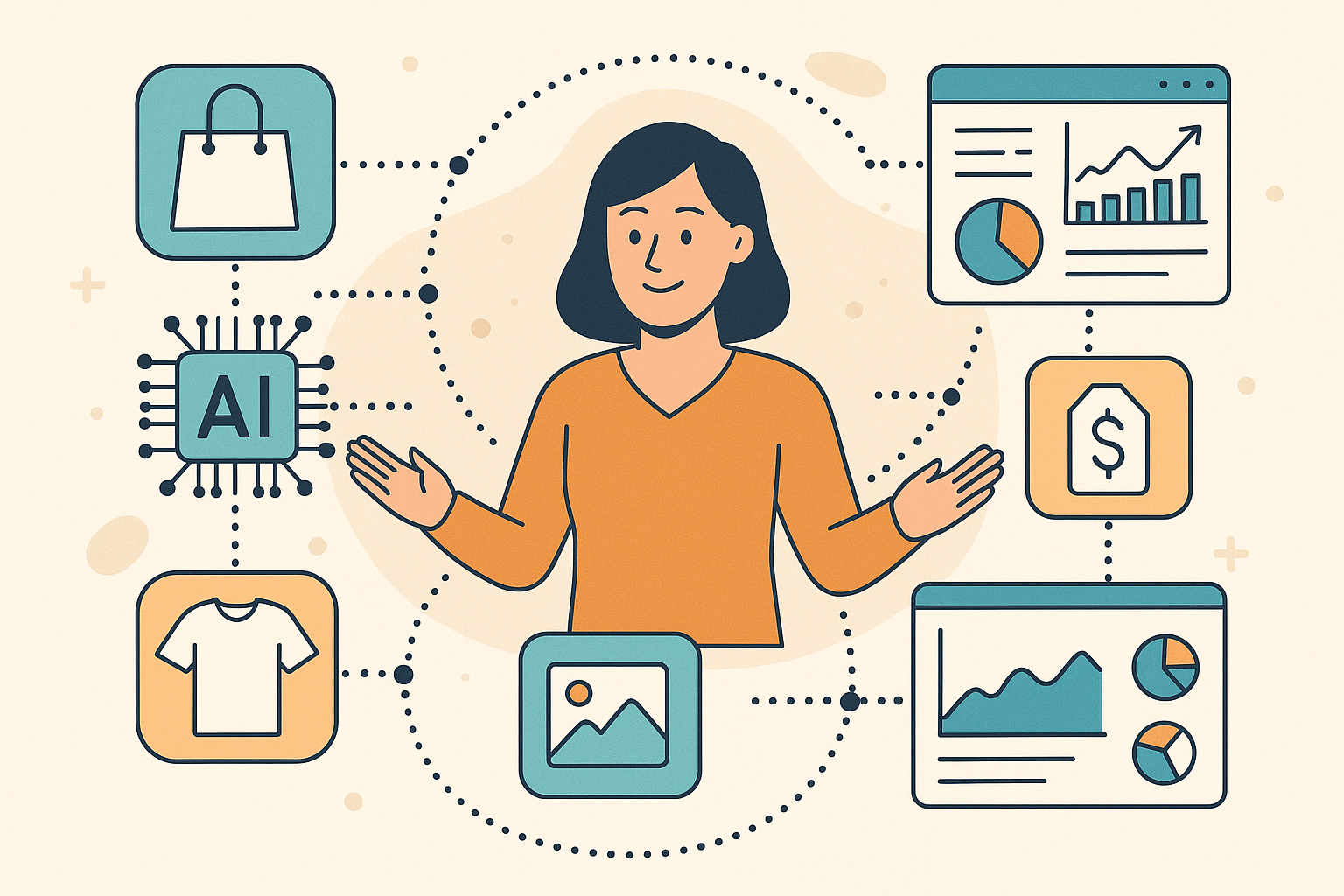The rise of contextual AI in commerce, where platforms use memory, context, and relational understanding to guide shoppers, is the most significant shift in digital retail of the decade. While much recent attention has focused on specific platforms and their AI breakthroughs, the underlying transformation is universal: marketplaces are moving from transactional, keyword-driven models to rich, conversational and personalized experiences.
For agencies, this shift is not a threat, but an opportunity to redefine our value and lead brands into a new era of customer-centric, CRM-powered commerce.
From Listings to Ecosystems: The Agency’s New Mandate
Where once agencies focused on optimizing individual product listings and maximizing short-term conversions, today’s challenge is far more holistic. The goal is to architect interconnected product ecosystems, using CRM data as the backbone for strategy, and to actively “train” the new generation of e-commerce AI to recognize, recommend, and recall your brand.
1. Customer Journey Architecture & Portfolio Strategy
Old Model: SKU-by-SKU optimization and generic keyword research.
New Model: Designing and marketing entire product ecosystems, mapping out logical routines, bundles, and adjacent product lines informed by real customer behavior.
CRM Lens:
Agencies now start by mining first-party CRM data—purchase history, customer service interactions, loyalty program engagement—to uncover how your best customers naturally build routines and bundles. This insight becomes the blueprint for catalog structure, cross-sell strategies, and even product development. Instead of isolated products, the focus is on seamless journeys that contextual AI can understand and promote.
2. Contextual Content & AI Training
Old Model: Keyword-stuffed product descriptions for algorithms.
New Model: Crafting content to explicitly train contextual AIs about product relationships, use cases, and cross-sell opportunities.
CRM Lens:
Content is now written for both humans and machines, using natural language and explicit references to product connections (e.g., “Pair this with…” or “Customers who love X also use Y after…”). Agencies use insights from CRM-driven support tickets and feedback to anticipate and answer questions directly within content—making it easy for AI to surface relevant, value-driven recommendations.
3. Algorithmic Readiness & Foundational Excellence
Old Model: Basic listing hygiene and compliance.
New Model: Proactive, data-driven management to ensure every product is “AI-ready”—with optimized titles, visuals, ratings, and fulfillment standards.
CRM Lens:
Agencies leverage CRM data to identify and resolve recurring issues before they impact public ratings. Automated post-purchase flows encourage satisfied customers to leave reviews, building the social proof that contextual AI will use as a primary ranking signal. Quality, completeness, and credibility are non-negotiable.
4. Full-Funnel Intelligence & Performance Analytics
Old Model: Reporting on CTR, CVR, and top-line sales.
New Model: Tracking persistence, recall, and the lifetime value of customers influenced by AI-driven journeys.
CRM Lens:
Agencies provide unified dashboards that merge platform analytics with CRM data, tracking not just conversions, but how often your brand is recommended by AI, how frequently it’s recalled for returning users, and the “attach rate” (how well ecosystem products are purchased together). This approach reveals the true impact of contextual journeys and helps optimize for long-term loyalty, not just a one-off sale.
The Strategic Pivot: The Agency as Contextual Algorithm Trainer
In this new era, agencies are not just marketers—they are algorithm trainers. The job is to translate brand knowledge and customer insight from your CRM into signals that contextual AI can learn and act on. This means building a defensible value proposition: making your brand an indispensable part of the AI’s recommendation engine, not just another listing in a crowded marketplace.
Retailers with strong CRM foundations and loyalty programs are uniquely positioned to win, provided they can convert that data into actionable signals for AI-driven platforms. The agency’s role is to bridge that gap—feeding platforms the right information, optimizing every touchpoint, and ensuring brands are remembered, not forgotten.
Conclusion: Building for the Future
The future of commerce is omnichannel, AI-driven, and relentlessly customer-centric. By leveraging CRM as the single source of truth, agencies can orchestrate product ecosystems, train contextual AIs, and deliver measurable, long-term value for brands in a world where customer journeys are conversational and memory-driven.
If you’re ready to evolve from SKU management to ecosystem orchestration and from transactional to relational commerce, now is the time to act! The agencies (like the one I work at) that adapt and lead in this new contextual era will not only survive but thrive.




